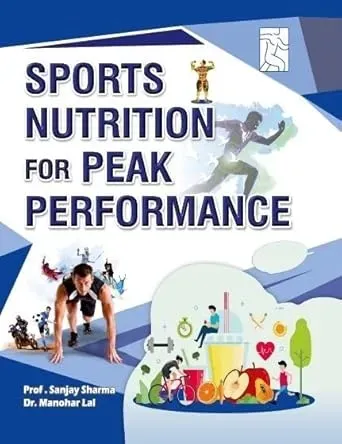Nutrition for Peak Sports Performance is the foundation that powers every sprint, lift, and game by aligning calories, nutrients, and timing with your training demands, ensuring you feel prepared, energized, and focused from warm-up to cool-down. What you eat—and when you eat it—shapes energy, focus, endurance, recovery, and pre-game fueling strategies across all phases of the season, helping you avoid the mid-session slump and stay resilient through back-to-back workouts. A practical approach blends personalized fueling with clear meal timing, ensuring you hit carbohydrate timing targets that support glycogen stores and steady energy during high-intensity work. This emphasis on hydration supports performance, recovery, and mental clarity as temperatures rise or training length extends, while also helping you stay attuned to thirst, fatigue, and recovery signals. By weaving these elements into a simple, consistent routine, you can translate training into performance gains and sustain progress over a full season, while staying adaptable to travel, school or work commitments, and changing training cycles.
For athletes, fueling decisions set the pace for training and competition, and the right choices can lift energy, focus, and resilience before every session. Nutritional planning for sport centers on balancing calories with macronutrients, steady hydration, and timing that matches training cycles and travel demands. From an LSI perspective, the topic is framed through related ideas such as carbohydrate availability before workouts, protein distribution for recovery, and fluid strategies that sustain performance. The emphasis shifts toward practical routines, habit formation, and personalized adjustments rather than one-size-fits-all rules. Viewed through this lens, consistent nourishment supports training adaptations, reduces fatigue, and helps athletes stay competitive across a busy season.
Nutrition for Peak Sports Performance: Foundations and Personalization
Nutrition for Peak Sports Performance is a foundation for athletic success across disciplines. In sports nutrition, the goal is to balance energy needs with performance demands, tailoring calories and macros to body size, sport, and training load. Carbohydrates provide the primary fuel for high intensity work, while protein supports muscle repair and adaptation, and fats supply dense energy for longer sessions. Hydration strategies ensure cognitive function and thermoregulation, and micronutrient intake supports recovery and immunity.
By translating nutrition science into everyday habits—consistent meal timing, varied nutrient sources, and planning around training schedules—you build reliability that carries into competition. This personalized approach helps athletes maintain energy, support training adaptations, and optimize body composition over a season. In practice, it means aligning meals with training windows, travel, and daily routines to reduce stress and improve adherence.
Pre-Game Fueling: Timing, Comfort, and Practical Choices
Pre-Game Fueling is about delivering steady energy without GI distress. Effective pre game fueling emphasizes familiar, easily digested meals and snacks rich in carbohydrates with moderate protein and minimal fat and fiber close to activity. For most athletes, timing matters: a larger meal 3-4 hours before and a lighter option 60-90 minutes before can optimize glycogen stores while maintaining comfort.
Choosing foods such as oats, rice, fruit, yogurt, and smoothies supports rapid energy delivery. Practical strategies include rehearsing fueling plans during training and travel so you know what works under pressure. This approach embodies pre-game fueling and overall sports nutrition planning.
Carbohydrate Timing for Performance: Fueling Around Training
Carbohydrate timing is the strategic placement of carbohydrates to fuel performance and recovery. During longer training sessions, intra-workout carbohydrates such as gels, chews, or sports drinks help sustain blood glucose and delay fatigue.
Post-workout, consuming carbohydrates within 30-60 minutes supports glycogen resynthesis, especially when paired with protein. A 3:1 or 4:1 carbohydrate to protein ratio is a common guideline, but needs vary with sport, body size, and training intensity. Daily patterns should reflect training load, with higher carbohydrate needs during heavy weeks.
Protein for Athletes: Building and Repairing Muscle
Protein for Athletes is a critical pillar for performance and recovery. Adequate protein supports muscle protein synthesis, preserves lean mass during heavy training, and contributes to immune function. Typical guidance suggests around 1.6-2.2 grams of protein per kilogram of body weight per day for most athletes, with higher intakes possible under supervision for very intense programs.
Spreading protein across 3-5 meals or snacks helps maintain a steady supply of amino acids for repair and adaptation. Emphasize high quality sources such as poultry, fish, eggs, dairy, legumes, and soy, and prioritize post-workout protein of 20-40 grams to accelerate recovery when paired with carbohydrates. Adjust intake based on sex, age, and sport specific demands.
Hydration Strategies for Peak Performance
Hydration Strategies for Peak Performance emphasize fluid and electrolyte balance as a performance multiplier. Begin workouts well hydrated, aim for pale yellow urine as a simple marker, and tailor intake to climate and sweat rate.
During workouts longer than 60 minutes, include electrolytes and carbohydrates in drinks or gels to maintain pace and focus; shorter sessions rely on plain water unless hot or humid. Post-exercise rehydration should restore fluids and electrolytes; personalize plans via sweat testing and environmental factors.
Recovery Nutrition and a Simple, Flexible Plan
Recovery Nutrition ties training to gains by refueling soon after exercise to maximize glycogen resynthesis and muscle repair. Carbohydrates after training should be about 1-1.5 g/kg within the first hour, then balanced meals over the next several hours.
Protein after training should be about 0.25-0.3 g/kg to maximize muscle protein synthesis, and combining carbs with protein enhances recovery beyond either alone. Practical options include chocolate milk, yogurt with fruit, smoothies, or a turkey sandwich; adjust timing for longer or more intense sessions and keep a flexible, sustainable plan.
Frequently Asked Questions
What is Nutrition for Peak Sports Performance and why does it matter for athletes?
Nutrition for Peak Sports Performance is the evidence-based framework for fueling, recovery, and training adaptation in sport. Grounded in sports nutrition principles, it emphasizes energy balance, adequate macros, and timely intake to support energy, endurance, focus, and faster recovery across training and competition.
How does pre-game fueling fit within Nutrition for Peak Sports Performance?
Pre-game fueling focuses on providing energy before training or competition while minimizing GI distress. In Nutrition for Peak Sports Performance, aim for a bigger meal 3–4 hours before, a lighter snack 60–90 minutes prior, and choose carbohydrate-rich options with moderate protein and low fat and fiber.
What is carbohydrate timing and how can it enhance Nutrition for Peak Sports Performance?
Carbohydrate timing optimizes energy around workouts. During longer sessions, use intra-workout carbs; post-workout consume carbs within 30–60 minutes with protein to support glycogen resynthesis; daily pattern should scale with training load; emphasize complex carbohydrates and timing.
How much protein for athletes should I aim for in Nutrition for Peak Sports Performance?
Aim for roughly 1.6–2.2 g/kg body weight per day, distributed across 3–5 meals; post-workout protein 20–40 g; choose lean protein sources.
What hydration strategies support Nutrition for Peak Sports Performance?
Hydration strategies are essential for thermoregulation and cognitive function. Start well hydrated, include electrolytes for sessions over 60 minutes, use plain water for shorter efforts, and rehydrate after training; tailor to sweat rate and environment.
How can I implement a simple, flexible plan for Nutrition for Peak Sports Performance?
Create a sustainable plan: breakfast with carbs and protein, a mid-day snack, a solid pre-workout meal, and a post-workout recovery snack; adjust for training days, travel, and schedule; track energy, GI comfort, and recovery to fine-tune.
| Topic | Key Points | Practical Takeaways |
|---|---|---|
| Foundations of Nutrition for Peak Sports Performance |
|
|
| Pre-Game Fueling: Timing and Choices |
|
|
| Carbohydrate Timing for Performance |
|
|
| Protein for Athletes: Building and Repairing Muscle |
|
|
| Hydration Strategies for Peak Performance |
|
|
| Recovery Nutrition: Turning Training into Gains |
|
|
| Putting It All Together: A Simple, Flexible Plan |
|
|
| Common Pitfalls to Avoid |
|
|
| Final Thoughts: Consistency Over Perfection |
|
|
Summary
Table created summarizing the key points from the base content on Nutrition for Peak Sports Performance.



